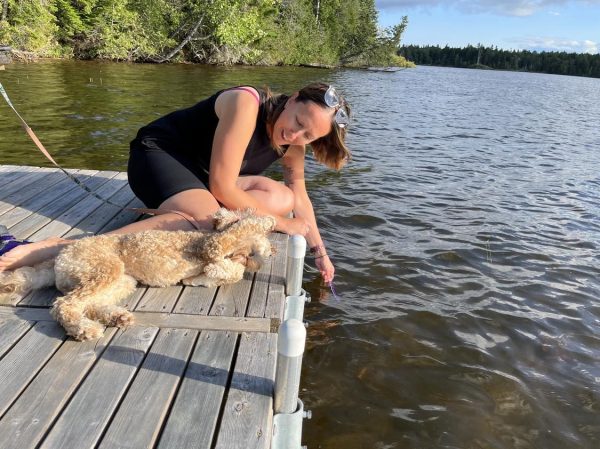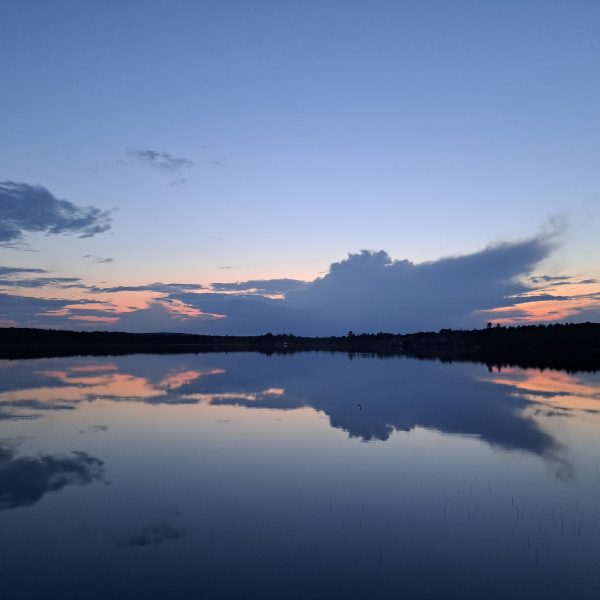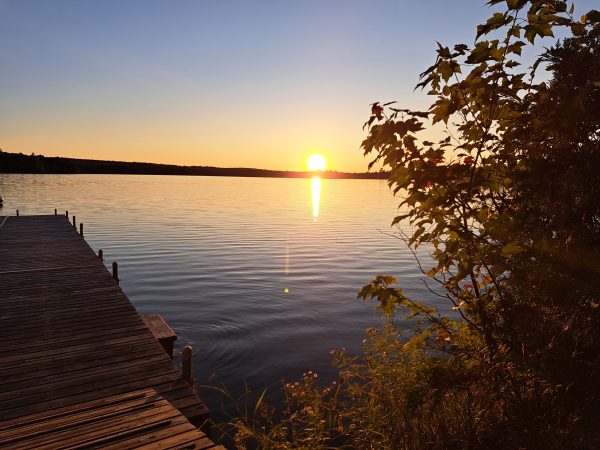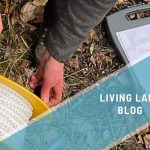Lake Blitz Volunteer Spotlight: Veronique Taylor
The Lake Blitz Volunteer Spotlight series gives us the opportunity to show appreciation for our remarkable Lake Blitz volunteers. From B.C. to Nova Scotia, 442 volunteers signed up to create a snapshot of lake health from May to September 2023 by collecting temperature readings and taking photos of the lake they’ve decided to monitor to better understand climate impacts.
We are excited to present our latest volunteer to be featured in this series: Veronique Taylor, who is joining in on the Lake Blitz from New Brunswick!
Q – What is your background?
A – I work in health care policy development for the provincial government in Fredericton, New Brunswick.
Q – What lake(s) are you monitoring (include province)?

A – I’m monitoring Scotch Lake in New Brunswick, which is located on the unsurrendered and unceded traditional territory of the Wolastoqiyik, Mi’kma’ki, and Wabanaki people.
Q – Do you have a personal connection to your lake?
A – My husband, two sons and I have been spending our summers on Scotch Lake since 2014. We have a cottage there where we hope to live full time one day.
Q – What motivated you to volunteer with the National Lake Blitz?
A – I grew up on the north shore of New Brunswick, near Chaleur Bay, so I’ve always had more exposure to the ocean. Freshwater lakes and their ecosystems are new to me, and I’m keen to learn more about them and how to keep them healthy.
Q – What concerns do you have about the future health of your chosen lake?
A – Cyanobacteria (blue-green algae) blooms have been reported in many lakes and rivers in New Brunswick in the past few years. We’ve been monitoring Scotch Lake closely for such blooms as they can impact the health of humans and animals. Luckily, we haven’t observed any blooms to date.
Q – What is your favourite bird, fish or other wildlife species you see at your lake?
A – We are fortunate to have many old growth pine trees around our property. Some eagles have built a nest in one of them and have been around for the past few years. I love seeing them soar around and dive for chain pickerel in the lake.
Q – What is one thing everyone can do to protect their local lakes?
A – Maintaining the natural vegetation on lake shorelines has many benefits, including helping to keep excess nutrients from entering the water. Excess nutrients such as phosphorus and nitrogen can offset the natural balance of the lake and cause issues such as cyanobacteria blooms.
All photos by Veronique Taylor.








